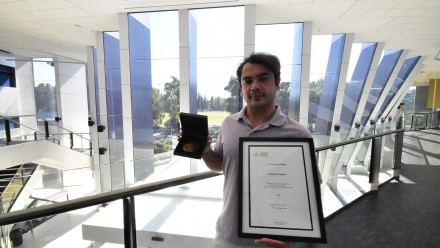Cancer to Cardiology: the enigma of EGF receptors
Professor Walter (Wally) Thomas, Professor and Chair in General. School of Biomedical Sciences, The University of Queensland.
In addition to their role in cancer, epidermal growth factor (EGF) receptors (ErbB1-ErbB4) promote cardiac development and growth – although the specific EGF ligands and receptor isoforms involved in growth/repair versus pathology remain undefined, primarily because embryonic deletion of these genes causes lethality. My plan for this presentation will be to summarise briefly my research group’s focus on G protein-coupled receptors and to place that work in context with our current efforts at understanding the role of ErbB receptors in the heart. I will show how some fundamental experiments aimed at examining the contribution of the type1 angiotensin receptor to cardiac hypertrophy led us to focus on the central role of EGFRs in cardiac development, growth and maintenance. I will also reveal unpublished data from transgenic mice where EGFRs are selectively deleted from heart cells, which identify a critical role for these receptors, not in the adult, but in the perinatal window, a time where the heart is still capable of regeneration and repair to an extent not achievable in adults.
Professor Walter Thomas is a PhD graduate (1992) from the University of Queensland. His postdoctoral training/research in the USA and Melbourne (Baker Institute) was supported by a NHMRC CJ Martin Fellowship and subsequent NHMRC Research Fellowships. In 2008, he was recruited to the University of Queensland as the Chair of General Physiology. In September 2009, he was appointed to the position of Head of the School of Biomedical Sciences. In October 2015, he was seconded to the Directorship of the University of Queensland Diamantina Institute. In 2017, he returned to his substantive position in the School of Biomedical Sciences, where he is Head of the Receptor Biology Laboratory with a specific focus on the molecular and cellular physiology of G protein-coupled receptors (GPCRs) – his group has a strong international reputation for studying the processes that activate and deactivate these receptors in health and disease.












